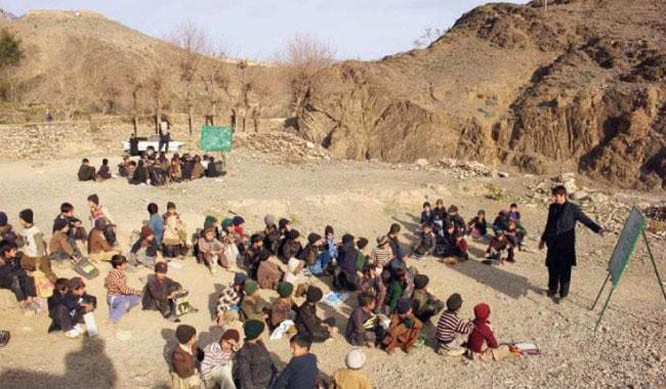
The only thing that the merger has changed is the nomenclature, from FCR to Fata Interim Governance Regulation 2018. If the change has to be real, it should not only be in name but in substance too

It is official now. The erstwhile Federally Administered Tribal Areas (Fata), then renamed as tribal districts, have become an integral part of Khyber Pakhtunkhwa after the president signed the bill of merger into law on May 31. Ideally, the best solution would have been making what was once Fata into a new province, as demanded by Jamiat UIema-i-Islam-Fazal. This arrangement would have provided authority more efficiently to the weak state.
The Pashtunkhwa Milli Awami Party’s (PkMAP) demand of an elected council of the defunct Fata, with the governor as an elected officeholder, was equivalent to awarding the region the very-unlikely status of Azad Kashmir.
As argued before, one reason why Fata became a hub for Taliban terrorists was because of the weak state functioning in the hinterland. Historically, the ruling authorities abdicated the state’s core functions, such as the provision of security, law-making, its execution and arbitration to non-state functionaries such as mullahs and sufis.
This holds true through the ages: from the Afghan kings to the Mughals to the British and then Pakistani rulers, all either established religious functionaries or at least acquiesced to their functioning in the tribal areas of the Indian northwest. Since the abdication of state authority to non-state actors was the official policy of every period, it can be called the ‘informal state’.
Nevertheless, my argument is not intended to obfuscate the truth which is that where the formal state’s authority was exercised, it took a toll on the residents -- especially in areas where the state’s interests were at stake. The implementation of the draconian Frontier Crimes Regulation (FCR) stands as a testimony to this. Since the British arrived in the tribal areas and the subsequent crafting of the FCR in 1871, the area where the state formally exercised its authority was far smaller than the area it avoided intervening in.
An Assistant Political Agent with service experience in tribal districts told me that in normal circumstances the ratio between where the state chooses not to intervene and where it intervenes is approximately 90-10 per cent. Perhaps, it is in this sense that PkMAP believes that tribal districts have historically remained ‘independent’. The selection of the word ‘independent’ for the otherwise semi-autonomous region is a misnomer of staggering proportion.
Another Assistant Commissioner from Khyber Pakhtunkhwa with knowledge of state machinery in the former tribal areas remarked that "The state authority in the tribal districts swings between shrinking and swelling depending upon how the government chooses to deal with their residents". He cited the example as how post-9/11 the very distinction between where the state could and couldn’t intervene disappeared, and the state’s intervention throughout the erstwhile tribal region became a ubiquitous phenomenon.
Fata with its own chief minister and all the paraphernalia of a province would have a more strengthened and efficient administrative capacity to deal with any impending danger. That would have been a Fata as a federating unit in its own right.
However, given the geographical constraints, as Peshawar a centre-point is more accessible to tribal districts than any other city in the districts, and the overwhelming support that the merger choice gained, the idea of former Fata as a separate federating unit did not catch on. This is politics; in the end the conclusion is not about what is desirable, but what is possible.
Although many are celebrating the merger, much remains to be desired. The Fata Interim Governance Regulation 2018, signed by the president on May 28 is eerily similar to the FCR. Ironically, the regulation is itself an embodiment of the FCR, which it has replaced. The regulation enshrines the jirga, rewaj, tribal elders and more worryingly the fact that the whole process will be overseen by the civil bureaucracy.
Read also: Fata-KP merger
In other words, things have not really changed. It is the nomenclature which has changed, from FCR to Fata Interim Governance Regulation. If the change has to be real, it should not only be in name but in substance too. In the latter case, it would mean extending all laws that are prevalent in the rest of Khyber Pakhtunkhwa to tribal districts and discarding any other laws including both the FCR and Fata Interim Regulation 2018.
One may, in all optimism, hope that the ‘regulation is an interim system of administration of justice’ as the regulation states. Otherwise, the murky waters of politics in Pakistan will continue to get murkier.